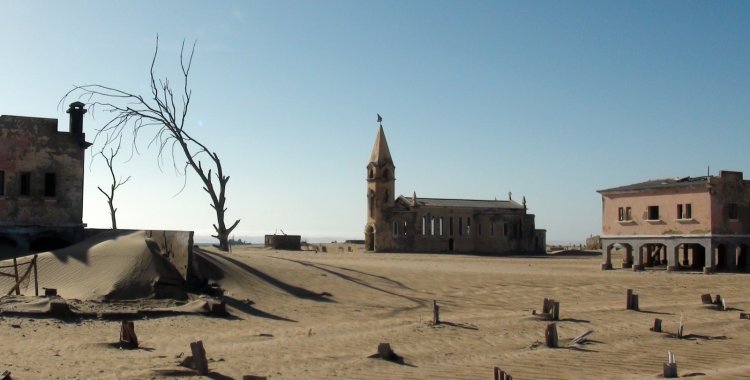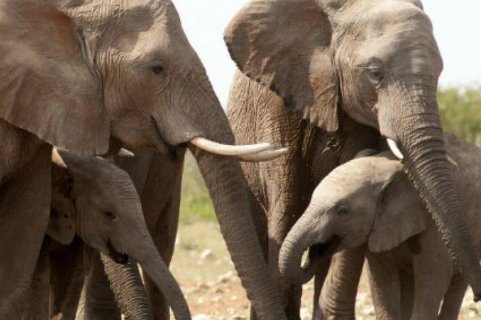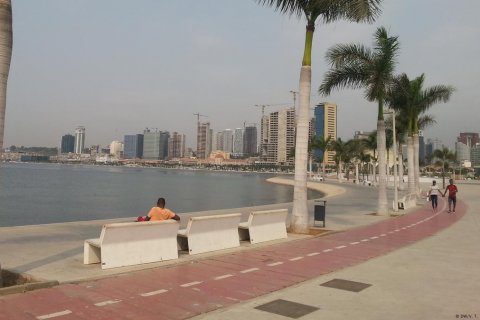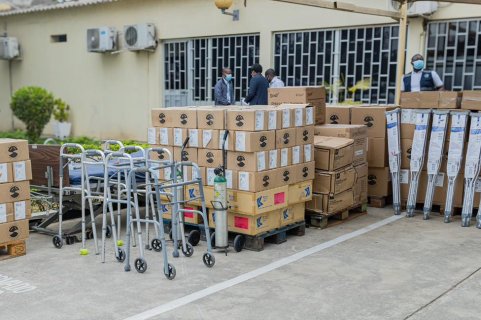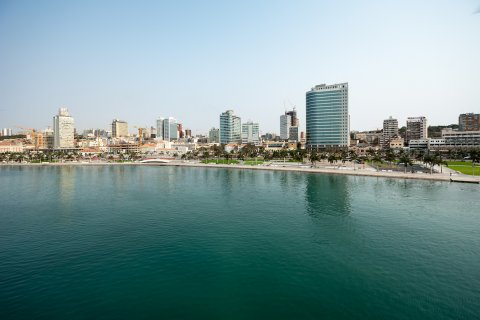The humanitarian organization said that the creation of farms for the trade of cattle on community lands had driven pastoral communities from their lands since the end of the civil war, in 2002, which caused a large part of the population to be food insecure.
This insecurity has paved the way for a humanitarian crisis, due to the extreme drought that has lasted for more than three years and as food and water become scarcer thousands of people have already left their homes to seek refuge in neighboring Namibia, highlighted the organization, in a statement.
"Millions of people in southern Angola are on the brink of starvation, caught between the devastating effects of climate change and the diversion of land to commercial livestock," said Amnesty International's director for Eastern and Southern Africa, Deprose Muchena.
The official noted that the worst drought in 40 years "has hit traditional communities that have struggled to survive since they were displaced from vast areas of pasture."
"The Angolan government must assume responsibility for its own role in this terrible situation, guarantee solutions to the affected communities and take immediate measures to resolve food insecurity in rural areas of the provinces of Cunene and Huíla," he said.
By 2019, Amnesty International had already warned that the Government had diverted community pastures in those regions to commercial livestock farmers, which impedes access to quality pastures and therefore undermines pastoral communities' economic and social resilience and capacity to produce food and survive droughts.
According to the Government, 67 percent of the pastures in the municipality of Gambos are occupied by commercial cattle raisers.
According to the non-governmental organization (NGO) Associação Construindo Communities (ACC), which distributes hampers in the region, families of traditional shepherds in the municipality of Gambos, province of Huíla, are starving.
He added that dozens of people have died from malnutrition since 2019, mostly elderly people and vulnerable children, and that people are turning to leaf consumption to survive.
Angolans in Cunene and Huíla provinces have been particularly hard hit by the persistent drought, after the 2020/2021 rainy season was unusually dry, meaning that the situation is likely to worsen in the coming months.
According to the World Food Program (WFP), the lack of rain between November 2020 and January 2021 resulted in the worst drought in 40 years.
The Namibian authorities registered a total of 894 Angolans in the Omusati and Kunene regions in March 2021, following reports of a large number of pastoralist families in Huila and Cunene provinces fleeing their homes to seek refuge in the north of the country neighbor.
In May 2021, national NGOs reported that more than 7,000 Angolans, mostly women with children, had fled to Namibia, and that the number was still increasing.
The Intergovernmental Panel on Climate Change (IPCC) noted that "the frequency and intensity of droughts has increased in some regions", including in southern Africa from pre-industrial levels due to global warming and that "the frequency and intensity of droughts is projected to increase particularly in the Mediterranean region and southern Africa".
In May 2021, the World Food Program (WFP) estimated that six million people in Angola had insufficient food, mainly in the south of the country, and that more than 15 million were using survival strategies based on crises or emergencies, such as saving or reducing expenses. non-food.
Amnesty International also called, in the communiqué, to the Angolan authorities and the international community to intensify their relief efforts, including the provision of sustained and regular emergency food assistance and access to clean and safe water for domestic use and consumption in rural areas. from the provinces of Cunene and Huila.
"The situation in southern Angola is a glaring warning that climate change is already causing suffering and death. The international community, especially the richest states and those most responsible for the climate crisis, must take immediate action to meet its obligations rights", underlined Deprose Muchena.

